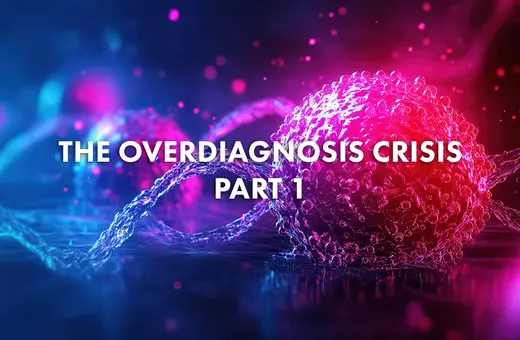Behind medicine's apparent Biblical authority lies an inquisitional apparatus aimed at silencing dissent. It is run by corporate PR and scientific planning agencies, backed by academic expertise, and its aim is to ensure that prescribing doctors keep on prescribing. The heretic ends up in the broad light of day, but the persecutor hides in the shadows.
I should know. In a lecture for IAI, I outlined some of the many things that can be done to intimidate doctors – especially those who suggest that a brand-name drug might have significant adverse events. At the time the talk was being given I was being referred again to the General Medical Council (GMC). Further details of this will be announced soon. Readers will be invited to work out who is attempting to commit the murder, with what, and why.
In this case is it the local health board, clinical colleagues, the relevant Royal College, the GMC itself, one of the major pharmaceutical companies, or even the Government?
A brief history of medicine
For millennia we have struggled with death and disease. In the 1950s there was a huge increase in the number of truly effective medicines, and this has played a part in improving life-spans and quality of life, in particular among children. These new drugs supported the creation of the National Health Service: effective treatments make populations healthier and more effective at work, so the provision of services offering such treatments makes a country better able to compete with others.
Although most new treatments emerged without a clinical trial in sight, following the thalidomide crisis in 1962, clinical trials were put in place as a way to evaluate treatments. The established wisdom now is that clinical trials reveal the truth about medicines – they are the gold standard method of evaluation – and that once a trial confirms that a drug works, doctors should prescribe it. Guidelines should enforce it, and health systems should make these treatments available at whatever cost as, if effective, they essentially pay for themselves.
Another safeguard put in place was the the creation of a prescription-only status for medicines. This was designed to control addicts, but eventually all new drugs became available on prescription only. This puts doctors very clearly centre stage.
The view that medicine should be evidence-based and that doctors should adhere to the evidence has become increasingly solidified in recent years. Linked to this, an ever increasing proportion of the population is on an ever greater number of medicines for ever longer periods of time. Meanwhile, treatment-induced death has become one of the three leading causes of death.
It now takes decades before doctors recognise a link between life-threatening events and treatment, where such recognition used to be much quicker. Randomised controlled trials have become the gold standard way to hide adverse events and their blind adoption is arguably a mistake of historic proportions. Latterly with the realisation that clinical trial data has been concealed there has been more of a push for access to clinical study reports – a company’s account of what its study shows. Doctors and researchers apparently don’t want to or can’t be trusted to have access to patient level data for reasons of confidentiality.
The medical literature has become ghost-written. Close to the entire literature stemming from clinical trials of on-patent drugs is ghost-written and the raw data from those trials is inaccessible. Nobody – not even the regulators – gets to see it.
The National Health Service, meanwhile, is on its way to being transformed into a system to deliver clinical trial patients to pharmaceutical companies.





















Join the conversation